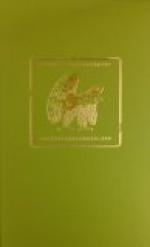“Yes, gentlemen,” he continued, thumping the table with a stout hand and repeating the gesture slowly, while the glasses trembled, “Alaska’s crying need is a railroad; a single finished line from the most northern harbor open to navigation the whole year—and that is Prince William Sound— straight through to the Tanana Valley and the upper Yukon. Already the first problem has been solved; we have pierced the icy barrier of the Coast Range. All we are waiting for is further right of way; the right to the forests, that timber may be secured for construction work; the right to mine coal for immediate use. But, gentlemen, we may grow gray waiting. What do men four thousand miles away, men who never saw Alaska, care about our needs?” He leaned back in his chair, while his glance moved from face to face and rested, half in challenge, on the member at the foot of the board. “These commissioners appointed off there in Washington,” he added. “These carpet-baggers from the little States beyond the Mississippi!”
Hollis Tisdale, who had spent some of the hardest years of his Alaska career in the service of the Government, met the delegate’s look with a quiet humor in his eyes.
“It seems to me,” he said, and his deep, expressive voice instantly held the attention of every one, “that such a man, with intelligence and insight, of course, stands the surest chance of giving general satisfaction in the end. He is at least disinterested, while the best of us, no matter how big he is, how clear-visioned, is bound to take his own district specially to heart. Prince William Sound alone has hundreds of miles of coast-line and includes more than one fine harbor with an ambitious seaport.”
At this a smile rippled around the table, and Miles Feversham, who was the attorney for one of the most ambitious syndicates of promoters in the north, gave his attention to the menu. But Tisdale, having spoken, turned his face to the open balcony door. His parka was thrown back, showing an incongruous breadth of stiff white bosom, yet he was the only man present who wore the garment with grace. In that moment the column of throat rising from the purple folds, the upward, listening pose of the fine head, in relief against the bearskin on the wall behind his chair, suggested a Greek medallion. His brown hair, close-cut, waved at the temples; lines were chiseled at the corners of his eyes and, with a lighter touch, about his mouth; yet his face, his whole compact, muscular body, gave an impression of youth—youth and power and the capacity for great endurance. His friends said the north never had left a mark of its grip on Tisdale. The life up there that had scarred, crippled, wrecked most of them seemed only to have mellowed him.




